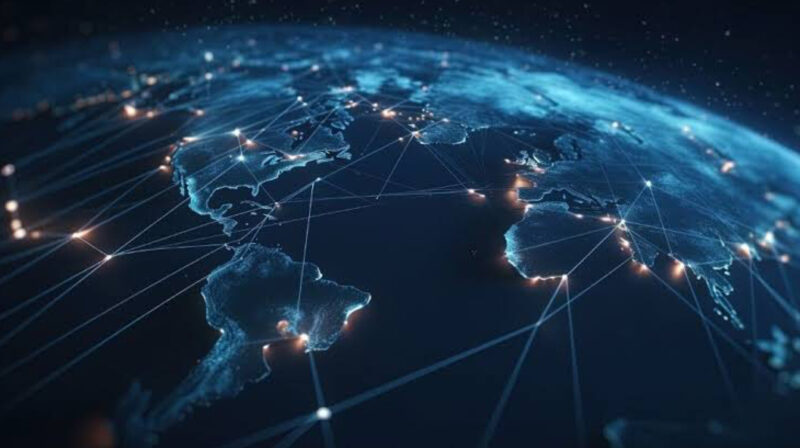Global Internet Usage Reaches 5.5 Billion in 2024, Highlighting Digital Divides
According to the International Telecommunication Union (ITU), approximately 5.5 billion people were using the Internet in 2024, marking an increase of 227 million from revised estimates for the previous year. The ITU, a specialized agency of the United Nations focused on information and communication technologies (ICTs), released the “Facts and Figures 2024” report, which sheds light on the ongoing challenge of global connectivity.
The report reveals that while Internet penetration continues to grow, reaching 68% of the global population, approximately one-third, or 2.6 billion individuals, still lack online access. The ITU emphasizes that persistent digital disparities remain significant hurdles, especially in low-income and least-developed countries, impeding the aim of universal connectivity.
ITU Secretary-General Doreen Bogdan-Martin remarked, “Facts and Figures 2024 illustrates a dual digital landscape between high-income and low-income nations.” She added that “glaring gaps in essential connectivity metrics are preventing the most vulnerable populations from accessing critical information, educational resources, and job opportunities.” Bogdan-Martin stressed that real progress in our interconnected age is not just about the speed at which we advance, but ensuring that everyone advances together.
The report also highlights the correlation between internet access and economic development. The statistics reveal marked differences based on income levels:
- In high-income countries, 93% of the population is online.
- In low-income countries, only 27% have Internet access.
- Among least developed countries (LDCs), 35% are connected.
- Landlocked developing countries (LLDCs) report 39% connectivity.
Cosmas Luckyson Zavazava, Director of ITU’s Telecommunication Development Bureau, called for urgent action, saying, “The world is moving towards universal access at a pace that should be much faster. Our progress hides significant gaps in the world’s most vulnerable areas, where digital exclusion exacerbates daily challenges. We must enhance our efforts to eliminate barriers and renew our commitment to achieving universal and meaningful connectivity.”
Key Insights from the “Facts and Figures 2024” Report:
- The gender gap in Internet usage is slowly diminishing, with 70% of men and 65% of women online globally. Despite 189 million more men using the Internet than women, progress toward gender parity remains steady, especially in LDCs.
- A significant urban-rural divide persists, as 83% of urban residents use the Internet compared to just 48% of those in rural areas. Among the 2.6 billion people offline, 1.8 billion reside in rural regions.
- Young people are leading Internet adoption, with 79% of individuals aged 15-24 using the Internet, 13 percentage points higher than older age groups. However, the gap has been narrowing over the past four years.
- Affordability issues continue to plague low-income countries, where the cost of fixed broadband can consume nearly one-third of the average monthly income.
- While mobile phone ownership exceeds 80% globally, it varies, peaking at 95% in high-income nations and plummeting to 56% in low-income regions.
- In terms of 5G technology, coverage stands at 51% of the global population in 2024, although disparities are glaring—84% coverage in high-income countries compared to just 4% in low-income nations.
- Internet usage is surging, with average monthly mobile broadband consumption at 16.2 GB in high-income areas, compared to only 2 GB in low-income countries.
The ITU’s report calls for intensified efforts to close the digital gaps, ensure affordable access, and provide meaningful connectivity to underrepresented populations worldwide.









Join our Channel...